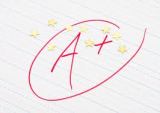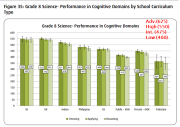This week, KDSL coordinated and presented an Education Parent Forum in Dubai focused on American curriculum schools. Parents of students in American curriculum schools had the chance to connect, ask their questions to a panel of experts, and learn about best practices. Parents had compiled insightful questions about how the US and IB curricula compare, how special needs were being addressed in American schools in Dubai, the readiness of Dubai graduates for US elite colleges and universities and finally, the introduction of the Common Core Curriculum in schools in Dubai.

The parent group had carefully constructed their questions to voice their concerns and asked about what else they could do for their children to help them succeed and be competitive with other students back in the US? Parents articulated concern about two key issues, university acceptance and the new curriculum in the US.
- Parents wondered about graduates from Dubai schools being admitted to good US colleges and universities. Peter Davos explained that the American-curriculum students were not at an advantage to study in American universities for two major reasons. First, they have grown to have a false sense of entitlement, and second, they have a perception of global issues that is peppered with a privileged bias. The combination of these two attitudinal issues reflects a graduate who is simply not realistically ready for the competitive life of a top tier university in the US – and it shows in their applications!
- Parents were confused about the quality assurance of the American curriculum and what is considered “American?” The development and the introduction of the Common Core Standards were explained by the panel with an emphasis that schools in Dubai have no real measures that can stop them from calling their curriculum American. But for those schools who have adopted the Common Core, there is notable pressure on school teachers to reform their practice; and teachers are calling out for professional support from their school leadership. The panel was clear – the Common Core is new and teachers are struggling with making sure that they (i) understand and appreciate the goals of the Common Core and (ii) have the professional support to be able to implement it appropriately in their classrooms. So parents need to put pressure on school leadership to ensure the teachers have the professional development to do their jobs and not just put pressure on the teachers!
The panel was very clear about the responsibility of parents to work with the school to prepare their child for graduating and being ready for a good post-secondary school. Surprisingly, these parents seemed unmindful that they were already ahead of the norm in Dubai. The forum was held at a school at 10am. They already prioritized becoming more informed about their children’s educational opportunities over anything else that day.
Do these parents realize that they are already doing something for their children’s attainment just by showing real interest?
The effect of positive parental engagement promoting the importance of education for their children is critical on student attainment. In fact, there are studies that show that parental involvement has a bigger effect than schools in shaping student achievement. It seemed that in the minds of these parents, they were just being parents. But in Dubai, where there is a marked lack of parental involvement because of a popular belief that “the education of their children is the sole responsibility of schools,” these parents were being superstars!

